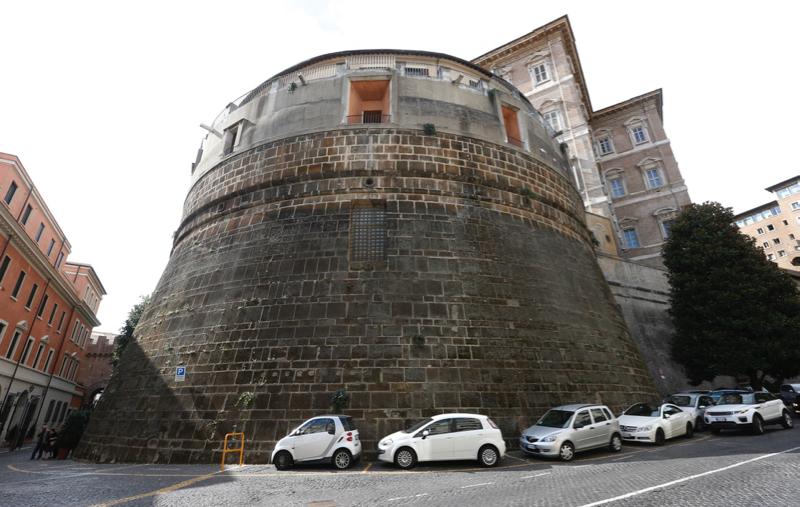Last week was a definitive triumph for climate change activists, particularly those Catholics who pray and struggle for a world boldly committed to resolving what seems like an insurmountable threat. Not only was Heathrow's third runway rightfully blocked by the Court of Appeal, the Jesuits announced that they would divest from fossil fuel investments. In addition, the dioceses of Middlesborough and Lancaster have divested from fossil fuels. In a world in which 50,000 people a year die from air pollution in the UK, the idea of expanding the busiest airport in Europe was a dangerous folly, incompatible with a Christian way of life. Such transformations are absolutely vital to our conversion towards a world of environmental justice and respect.
The Jesuits' decision to divest from fossil fuels is in line with an absolute imperative that religious institutions become the custodians, not the resisters, of the climate change movement. One wonders how St. Ignatius himself would feel about environmental issues, observing the industrial pollution in the River Urola of his native Loyola. This is all in line with Pope Francis' papal encyclical Laudato Si', which lays bare the urgent necessity to radically safeguard our common home", which we have "mistreated" over the last two centuries. Given Pope Francis is a Jesuit, it is not a bold speculation to state that the energy and bravery that the Jesuits mustered to divest comes from the influence of Pope Francis. Familiar with the systematic and authoritarian destruction of the rainforests in his native South America, Pope Francis brings a visionary perspective to the papacy of a global environment in terminal decline and under threat from a covetous establishment. The Catholic Church in Pope Francis' region bravely resists the wanton destruction of the rainforests, with figures like Father José Álvarez relentlessly defending indigenous people who rightly claim the earmarked land as their own.
It is the spirit of these bold defenders in South America that we must channel for the battle against climate change throughout Europe. There is one great work to be done in this battle: any Catholic concerned about the gargantuan scale of the climate emergency, the effects of which we see every day, must encourage the Vatican Bank to divest from fossil fuels. The Vatican Bank, or Institute for the Works of Religion, still retains fossil fuel investments. This is contrary to the organisation's raison d'être: it is not a conventional investment bank, but a financial organisation designed to enact the Catholic Church's works of mercy throughout the world. Indeed, in a press release in 2018, the IOR stated that its overwhelming concern is the "ethical dimension of its investments".
Making money on fossil fuel shares, even for the good of Catholics worldwide, contradicts any "ethical dimension" one might conjure. However, the President of the Board of Superintendence, Jean-Baptiste Douville de Franssu, advises two funds which retain shares worth hundreds of millions of dollars in oil and gas companies. One fund, Carmignac Gestion, holds $675.2 million in Anadarko Petroleum. In addition, Sir Michael Hintze, another board member, clings to stocks in Anadarko Petroleum, through his company CQS Cayman. He is also a keen supporter of the Global Warming Policy Foundation, a pressure group which publishes article after article denying the man-made nature of the climate emergency. This is in direct contradiction to Pope Francis' firm attestation that the real climate disasters, already leaving countless impoverished people throughout the world without shelters and endangering the lives of countless faithful, are principally the result of human activities.
In 1839, Pope Gregory XVI's papal bull "In supremo apostolatus" resolutely condemned slavery. Two years later, in 1841, a five-way treaty, the Treaty for the Suppression of the Slave Trade, was agreed by United Kingdom, France, Russia, Prussia and Austria. After the Pope's clear call for action, the movement for a world committed to a moral, Christian treatment of the ecosystem must be seen as tantamount to the nineteenth century's eventual realisation of the horrors of slavery. Both slavery and climate change disproportionately affect the poor. The Richard Bransons of this world can merely purchase a private island to escape the arriving (and worsening) natural, self-inflicted onslaught against us, while those unblessed by Mammon will be entirely displaced. According to the Institute for Economics and Peace, 18 million people in 2017 were relocated because of natural disasters. It is unthinkable that a leading figure in an organisation which claims to be "ethical" would maintain petroleum investments, which accounts for a third of climate emissions worldwide and thus the systematic destruction of creation.
However, what more fitting time for the IOR to regain public trust and divest from such investments, and for Catholics to demand this organisation to do so, than this Lenten period.



 Loading ...
Loading ...
What do you think?
You can post as a subscriber user ...
User comments (1)
little bit ironic to end this wonderful article with facebook, twitter etc etc.